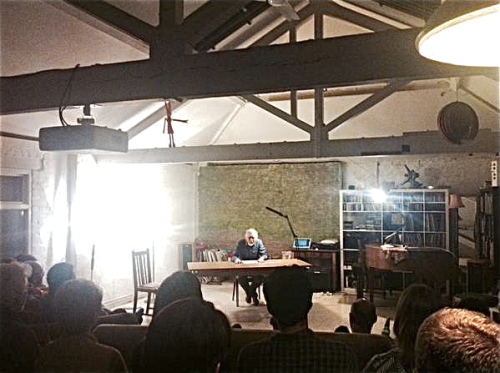october
Always a disjointed time of year. Sometimes charming, sometimes ugly. Two and a half chapters remaining of the new novel to write–should be finished around Christmas. All downhill but still no title, although I expect to find one at the last minute. That will be an adventure. Also, “What kind of book is this going to be?” you ask. Reader, I have no idea, nor want one. Maybe it’s a romance. Maybe it’s Weird. Maybe it’s set now. It’s certainly got some peculiar stuff in it. The one rule–written in “spidery” handwriting in red Muji 0.5mm and placed on the desk next to my inspirational Jenny Holtzer postcard, WORDS TEND TO BE INADEQUATE–was “flatten it off”. It’s odd, sad, oppressive, disturbing. It’s strange, but not in Aickman’s sense; maybe a touch eerie, but not necessarily in Mark Fisher’s sense. It’s sly. If you’ve spent time here you’ll know what to expect.
Speaking of which I’m off to Sheffield tomorrow to read some of the previously unperformed blog pieces you chose for my part in Tim Etchells’ Strong Language project, alongside Vlatka Horvat and Courttia Newland. So thanks everyone who put forward their choices for that.
After that, on Wednesday 24th October, I have another gig in Sheffield’s Off the Shelf festival, this time with the revered Iain Sinclair. We’ll be introduced by my friend & climbing partner, physicist Richard Jones.
If you’re new here, why not skim the bio or dip in at random; or if you feel like something longer & more involving, well, obviously, You Should Come With Me Now



